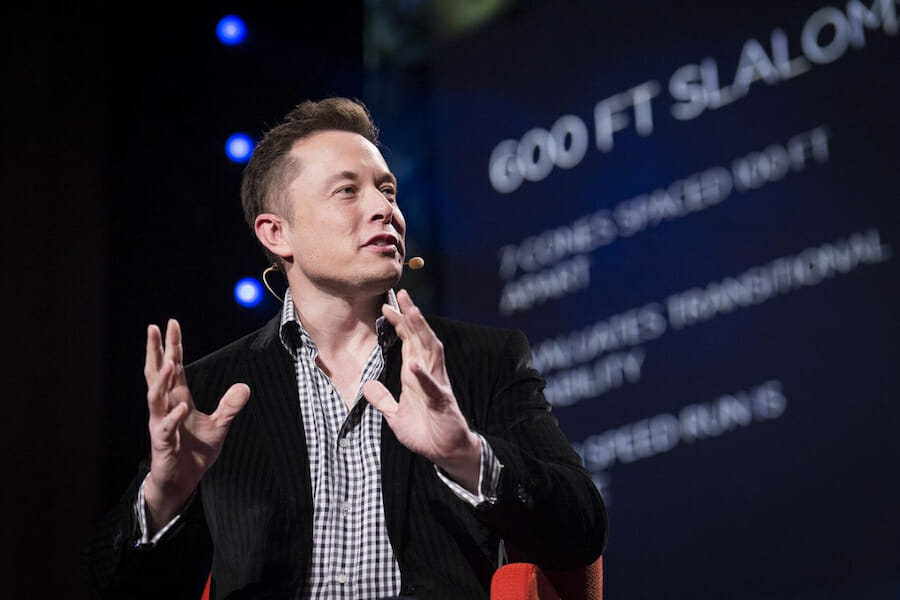
Tech
AI, Economic Inequality and Canada’s Role
AI is slowly seeping into our lives in profound ways. The way we think about AI is coloured by popular culture and science fiction. Many feel that if they could make that science fiction real then we wouldn’t have to worry about messy kinds of stuff in society. My concern is not about the singularity that experts like Ray Kurzweil have talked about in his book Singularity Is Near nor Hollywood movies like Transcendence, which paint a dystopian view of a future transformed by AI. The human brain is a remarkable piece of engineering and fears that AI might take over human brain is not imminent. The immediate question is the impact of AI on economic inequality.
I had a very close friend in the 5th grade. We played together and shared our lunches always. He was certainly my best buddy. His father was a cashier at the nearby bank. I still remember the first day of grade 6, when the school reopened after the long summer break. I was so happy that I would see my friend after a long time. But I was very disappointed when I learned that my friend had left the town and I wouldn’t see him again. The bank had replaced his father with an automatic teller machine. My father was a coffee grower and he used automation for his farming. I am glad that automation didn’t interrupt my schooling. However, it had replaced a lot of daily wage laborers who were working on our farm. I reconnected with my friend after 15 years and was very disappointed to hear about how he had been disadvantaged economically during his childhood. Today, there is a huge financial inequality. Economists debate the extent to which technology plays a role in economic inequality although it has created opportunities and a better standard of living for many.
It is hard to imagine any one technology that will shape our future more than AI. It is changing the nature of everything from jobs and the economy to warfare, privacy, and ethics. However, its long-term impact on economic inclusion remains unseen. A study from Oxford University estimated 47 percent of U.S. jobs are at risk due to AI. And many fear that lower-skilled and less-educated workers could be displaced. This means that AI will apply downward pressure on wages and upward pressure on inequality.
Earlier this year, Oxfam reported that just eight men own the same wealth as the poorest half of the world which illustrates the extent of economic polarization in our society. While we debate the extent to which AI plays a role in economic inequality, we also need to ask: what happens as technologies based on AI advance?
A number of AI related innovations is already emerging, ranging from energy-efficient smart cities to self-driving cars. AI could be a catalyst in bringing efficiency in governance, as in the sectors of healthcare and etc. However, there are concerns as well. Will it accelerate the job losses? I am a millennial and we millennials are not necessarily robot proof and we are very vulnerable to job loss due to automation and we will be competing with robots for jobs. I don’t want to create an impression that I am against AI and its shared prosperity principle. I still believe that, if properly utilized, AI can generate enormous economic prosperity and equal opportunity. However, we need to tackle its downside. Particularly when it comes to who controls AI?
My fear is about the power being concentrated in the hands of a small number of people. Since absolute power corrupts absolutely. Most of us are well aware of the stand taken by Elon Musk, creator of OpenAI, although I would like to refer to him as an architect of Tesla and SolarCity. Musk believes, AI could be an existential threat and he even went so far as to say: “we are summoning the demon.” I think he is talking about the people who will possibly gain control of AI. The same people must have been certain they had witnessed the death of the electric car. Now, the electric vehicles are back – stronger than ever. However, still, there are people who are pumping millions of dollars to promote a campaign on fossil fuel and abandon the “social cost of carbon.” These are the people from big corporations who hold as much of the wealth as half of humanity.
Now, these corporations are seeping slowly into our higher education system through various funds and grants and the military is talking about funding AI research, another dangerous player. In this hostile environment, how can we find broad agreement to achieve shared economic prosperity? When asked this question of James Barrat, author of the book Our Final Invention, he answered: “I don’t think a guaranteed wage will work because those creating wealth via AI don’t pay taxes where they make dollars.” If the increase in labor productivity does not render into wages, then the large economic gains could benefit only the select few. Instead of shared economic prosperity, this might push towards reduced competition and increased economic inequality.
Whether AI leads inequality over the long-run depends not only on the technology itself but also on the institutions and policies that are in place. Responding to the economic effects of AI will be a significant policy challenge for all administrations around the world. Policymakers should find areas where they can bring shared prosperity and allot resources for AI research. AI raises significant policy questions which could be at the center of dialogue at various forums. I think the United Nations should convene an Intergovernmental Panel on Artificial Intelligence (IPAI) to bring broad agreement to create shared prosperity. Today, Canada is in the forefront as world’s soft power and certainly can take the leadership role in bringing forth a broad consensus which can bring economic prosperity created by AI to benefit all the humanity.

